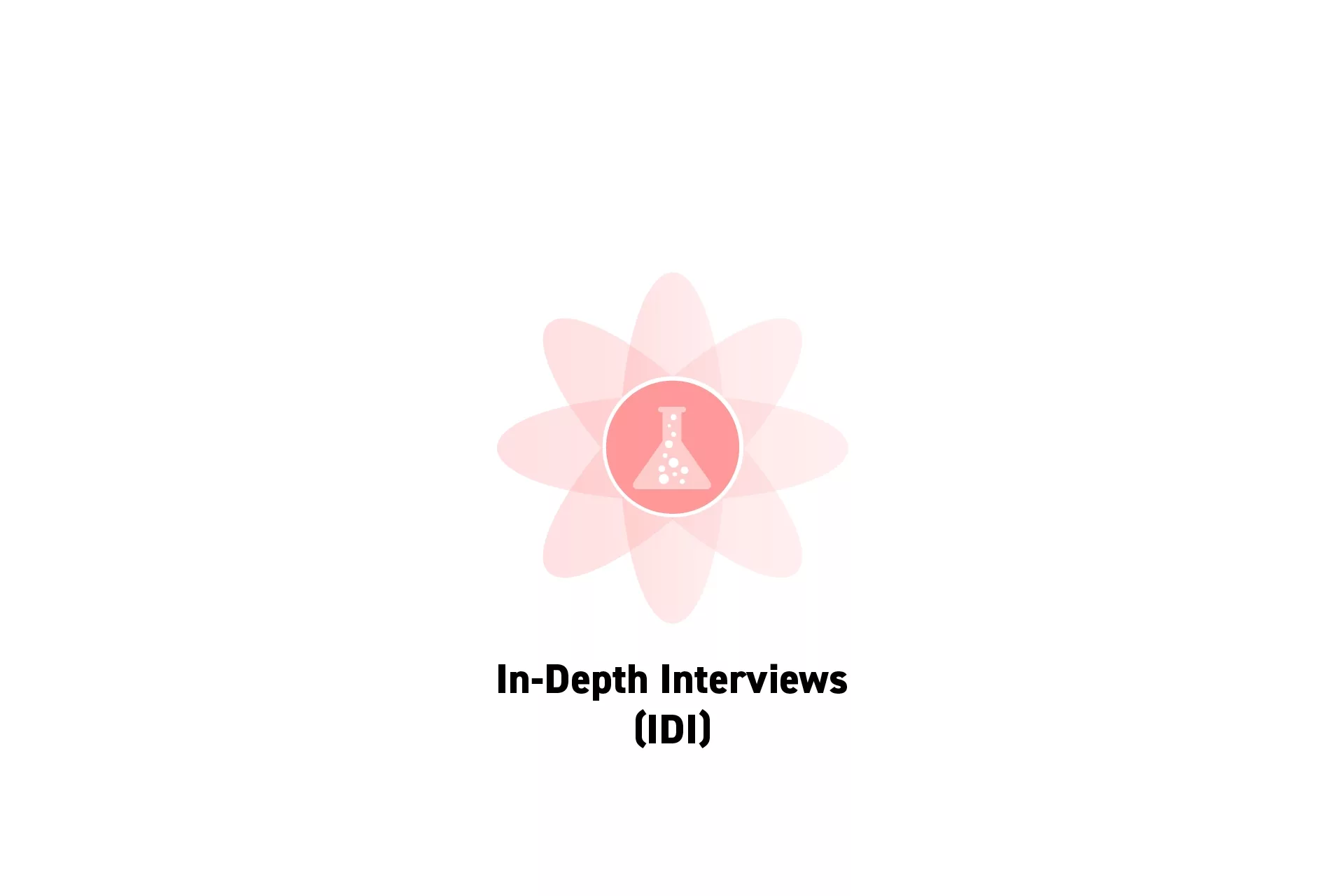What are In-Depth Interviews (IDI's) and how do I conduct them?
An In-Depth Interview (IDI) is a qualitative research approach that involves one-on-one engagements with participants. They are used to gather an honest, intimate and profound understanding of an audience and user behavior around a topic.

An In-Depth Interview (IDI) is a qualitative research approach that involves one-on-one engagements with participants. They are used to gather an honest, intimate and profound understanding of an audience and user behavior around a topic.
SubscribeWhat is Qualitative Research?In-Depth Interviews IDI's are a powerful user research tool that enables companies or individuals to gather intimate, honest and profound information directly from the target audience.
It is recommended that companies or individuals do multiple interviews (IDIs) with members of their target audience and synthesize the data in order to validate that there is a true customer need with a return on investment from a large portion of the target audience (i.e. more than a small group of people would pay for your product, service or experience).
As part of the validation that there is a true need, we strongly recommend that you interview the user about the jobs that they do in relation to the field that you are seeking to bring a product, service or experience to. These jobs may reveal gaps in the market that could be fulfilled by your business as a means to enhancing the lives of the users.
To learn more consult the Harvard Business School article linked below.
These jobs or pain points that might be uncovered should be formalized into a user journey map and an empathy map with an associated persona for each individual that you carry an IDI on.
Please note that the IDI's may demonstrate that there is no need for your offering, at which point you may need to pivot or abandon the product, service or experience entirely.
How to structure an In-Depth Interview
IDI's can be structured, unstructured or somewhere in between. Here's how they can be described:
- Structured interviews are fixed in their methodology. The interviewer would only ask predetermined questions and target specific experiences. A structured approach limits the scope for exploring discussed topics in more depth.
- Unstructured interviews aren’t defined and don’t include pre-planned questions. It’s more like a conversation between the researcher and the respondent.
- Semi-structured interviews follow some protocols to guide the process. While it’s a conversation between two individuals, and the interviewer can ask for more details, most of the questions are scripted. Interviewers will plan some initial questions and themes to cover, but allow the respondents’ answers to guide the interview direction.
How to conduct a good In-Depth Interview
IDI's are time consuming and require practice to get right.
You can't interview any participant and expect great outcomes and you can't expect any interviewer to get great outcomes from the right participant.
Below are our tips for conducting a good IDI.
A/ Have the participant sign a consent form
To legally use the participants’ responses and details, you need to make sure that everyone signs an agreement as to how the information gathered from the interview will be used.
Consent always needs to be:
- Based on clearly explained information. Participants need to know what exactly is being researched. Provide a detailed information sheet for them to read before signing.
- Given freely. Consent can’t be dependent on receiving a benefit. If you plan on offering incentives, make sure you do this before asking for consent.
- Given separately from other information. Consent forms need to be given separately to an NDA form, for example.
- Given for a specific purpose. If you plan on using the research in multiple ways, consent needs to be given for all of them.
- Able to be refused and withdrawn. The interviewee needs to know how they can withdraw consent at any moment during the process.
B/ Warm up the participant
At the start of any IDI, make sure you spend some time getting to know the participant personally.
Set the product, service or experience to one side spend time learning more about the participants life outside of whatever it is that you're trying to research.
You will be surprised how this will inform the conversation later.
C/ Have a list of pre-set questions
Unless you're carrying out a structured IDI, IDI's are meant to be fluid, allowing for the conversation to go where it needs to.
That said, it is always recommended that you go into an IDI with a good set of questions that may help you navigate the IDI and which will make sure you cover the important points.
D/ Have a separate note taker or record the interview
Note taking can destroy the fluidity of the conversation and damage the potential of an IDI.
With this in mind, either:
- Record the conversation and take notes after.
Or
- Have a separate individual to take notes during the meeting.
E/ Be respectful
A good IDI is intimate and reveals secrets about a participant.
In order for this to take place the participant must feel safe and respected.
F/ Remove bias
You are not your audience and you are not your user.
Remove any bias and accept any answer that your participant may provide.
If you are curious as to why, dig deeper.
Learn about design thinking products that could come out of your research
We recommend that you consult our Methods for Synthesizing User Research article linked below to learn about design thinking products that could come out of the research that you have conducted.
These products are created using popular design research methodologies which are intended to help you and your organization innovate effectively.
Looking to learn more about Research and Strategy?
Search our blog to find educational content on research and strategy.